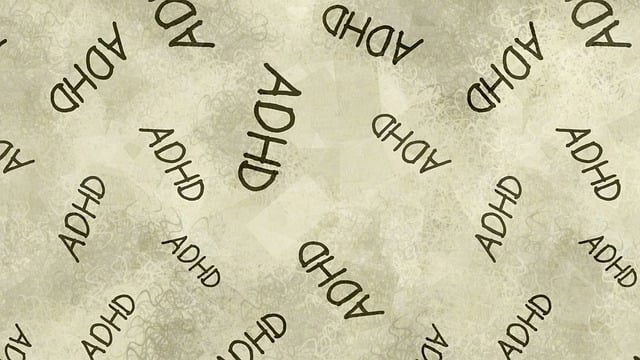Cultural sensitivity is paramount in mental healthcare, especially for treating conduct disorders in diverse communities like Colorado Springs. Therapists must understand and respect clients' cultural backgrounds, integrating strategies like self-awareness exercises and tailored communication to build trust and improve treatment outcomes. Challenges include systemic barriers, historical injustices, and limited culturally competent professionals, requiring enhanced service access and robust mental health policies. By embracing diversity, therapists facilitate meaningful emotional healing and teach personalized self-care routines, ultimately promoting long-term mental well-being for at-risk youth in Colorado Springs.
In today’s diverse society, cultural sensitivity is paramount in mental healthcare. This article explores the intricate dynamics of providing effective treatment while respecting and understanding various cultural backgrounds. We delve into the unique challenges faced in Colorado Springs, a bustling metropolis with a rich tapestry of cultures. Specifically, we focus on conduct disorder therapy, discussing strategies to enhance cultural competence. By embracing these approaches, mental health professionals can build trust and deliver transformative treatments tailored to individual needs, especially within the context of Colorado Springs conduct disorder therapy.
- Understanding Cultural Sensitivity in Mental Healthcare
- The Impact of Cultural Background on Mental Health Experiences
- Challenges in Providing Culture-Aware Therapy in Colorado Springs
- Strategies for Incorporating Cultural Competence in Conduct Disorder Treatment
- Building Trust and Effective Treatments through Cultural Sensitivity
Understanding Cultural Sensitivity in Mental Healthcare

Cultural sensitivity in mental healthcare is a vital aspect that cannot be overlooked, especially in diverse communities like Colorado Springs. It involves recognizing and respecting the unique cultural beliefs, values, and practices of individuals seeking therapy. This awareness is crucial when addressing various mental health concerns, including conduct disorder, which may manifest differently across cultures. For instance, what is considered disruptive behavior in one culture might be a normal expression of identity in another.
By integrating cultural sensitivity into practice, therapists in Colorado Springs Conduct Disorder Therapy can foster a more inclusive environment. This involves adapting traditional therapeutic approaches and incorporating strategies like self-awareness exercises and communication techniques that promote positive thinking. Effective communication strategies allow therapists to build trust with clients from different backgrounds, ensuring each individual feels heard and understood, ultimately leading to better treatment outcomes.
The Impact of Cultural Background on Mental Health Experiences

Understanding the impact of cultural background on mental health experiences is crucial in providing effective care. In Colorado Springs or any diverse community, individuals from various ethnic and cultural backgrounds may face unique challenges that influence their mental wellness journeys. For instance, certain cultural beliefs and practices can shape how a person perceives and expresses emotions, seeks support, or responds to therapeutic interventions. What’s more, historical and systemic factors, such as discrimination or cultural misunderstandings within the healthcare system, can exacerbate existing mental health issues or create barriers to accessing quality care.
A holistic approach to mental healthcare requires addressing these cultural nuances. Risk Management Planning for Mental Health Professionals should incorporate Healthcare Provider Cultural Competency Training to ensure practitioners are equipped to deliver sensitive and effective treatment. Furthermore, Developing Mental Wellness Coaching Programs that consider the diverse needs of clients can foster a more inclusive and supportive environment, ultimately enhancing therapeutic outcomes.
Challenges in Providing Culture-Aware Therapy in Colorado Springs

Providing culture-aware therapy in Colorado Springs presents unique challenges, particularly when addressing conduct disorder among diverse youth populations. The city’s cultural landscape is rich and varied, with a significant Native American, Latino, and other minority communities. These groups often face systemic barriers to mental healthcare access due to factors like language differences, cultural mistrust stemming from historical injustices, and limited insurance coverage.
For instance, the lack of culturally competent professionals in Colorado Springs can hinder effective therapy for youth from marginalized backgrounds. Mental health services that do not account for distinct cultural beliefs, communication styles, and family dynamics may result in misdiagnoses or ineffective treatment plans. Moreover, navigating diverse family structures and addressing intergenerational trauma requires specialized knowledge, which can be scarce locally. Enhancing access to services and ensuring a robust mental health policy analysis and advocacy approach are crucial steps toward improving outcomes for at-risk youth, including those struggling with conduct disorder, aiming for both anxiety relief and confidence boosting in Colorado Springs.
Strategies for Incorporating Cultural Competence in Conduct Disorder Treatment

Incorporating cultural competence into Colorado Springs Conduct Disorder Therapy is essential for effective treatment and positive outcomes. Recognizing that each individual’s cultural background shapes their experiences, beliefs, and behaviors, therapists must adapt their practices to respect and understand these nuances. Strategies include actively listening to clients’ perspectives, incorporating culturally relevant therapeutic techniques, and fostering a safe space where individuals feel comfortable expressing themselves honestly. By embracing diversity, therapists can facilitate meaningful emotional healing processes.
Beyond addressing specific conduct disorder symptoms, therapists should support clients in developing healthy self-care routines tailored to their cultural identities. This involves teaching coping mechanisms that align with the client’s values and traditions, promoting stress reduction techniques such as mindfulness or meditation, and encouraging social connections within the community. Such holistic approaches not only aid in anxiety relief but also empower individuals to maintain long-term mental health and well-being.
Building Trust and Effective Treatments through Cultural Sensitivity

In mental healthcare, cultural sensitivity is key to building trust and effective treatment plans. By understanding and respecting a client’s cultural background, values, and beliefs, therapists in Colorado Springs can create a safe and supportive environment that fosters open communication. This is particularly crucial when addressing issues like conduct disorder, where cultural context plays a significant role in understanding and treating the root causes. When mental health professionals demonstrate cultural sensitivity, they not only enhance the therapeutic relationship but also improve treatment outcomes, ensuring that interventions are tailored to meet the unique needs of each individual.
This approach goes beyond mere knowledge of different cultures; it involves integrating these insights into daily practice. For instance, therapists might adapt their communication styles, use culturally relevant examples, and consider family dynamics and community influences. Such personalized care can significantly impact treatment adherence and success rates. Moreover, incorporating cultural sensitivity into mental healthcare not only benefits clients but also serves as an essential risk management tool for professionals, promoting ethical practices and enhancing self-care, which is vital in preventing burnout and ensuring sustained career satisfaction, especially in areas like Colorado Springs where diverse communities exist side by side with unique challenges and strengths.
Cultural sensitivity is a cornerstone of effective mental healthcare, especially in diverse communities like Colorado Springs. By understanding the impact of cultural background on mental health experiences and implementing strategies for cultural competence, practitioners can significantly enhance treatment outcomes for individuals with conduct disorders. Navigating the challenges specific to Colorado Springs requires a nuanced approach that builds trust and fosters effective therapies tailored to each patient’s unique cultural context. This holistic perspective ensures that mental healthcare in Colorado Springs becomes more inclusive, accessible, and ultimately, life-changing for all who seek support.














